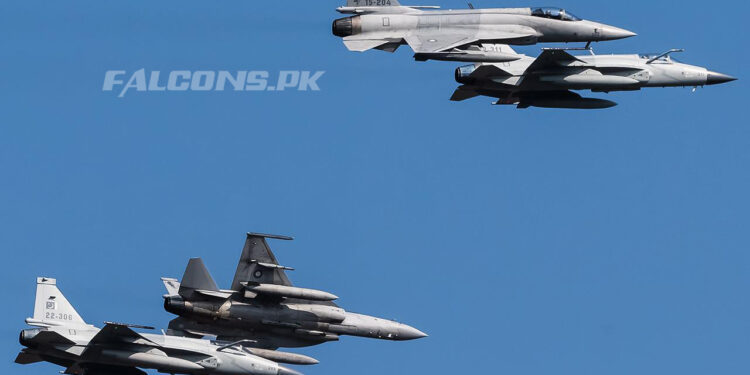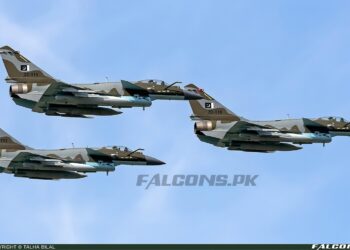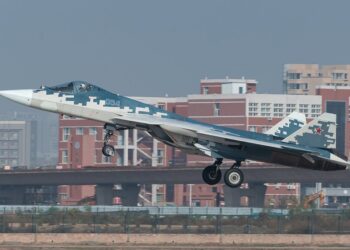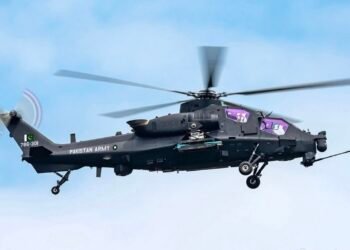By Rizwan Shah
Amidst the bustling international arms market, a new chapter unfolds as Pakistan clinches a groundbreaking export contract, earmarking a pivotal leap in its defense production and diplomatic prowess. With a handshake that reverberates through the corridors of power in Islamabad and Baku, the two nations ink a deal valued at an astounding $1.6 billion.
The centerpiece of this historic agreement? The sale of JF-17 Block III fighter aircraft to Azerbaijan, a move that not only promises to bolster Azerbaijan’s military capabilities but also catapults Pakistan into the limelight as a key player in the global defense industry.
The JF-17 Thunder, born out of a collaboration between Pakistan and China, represents a blend of versatility, power, and cost-effectiveness. Designed to meet the myriad demands of contemporary warfare, the JF-17 has carved a niche for itself among modern fighter jets.
However, it is the Block III variant that truly sets the bar higher. Equipped with state-of-the-art avionics, enhanced firepower, and superior combat capabilities, the JF-17 Block III variant emerges as a formidable contender in the skies. For Azerbaijan, this acquisition signifies a quantum leap in defense, positioning it as a formidable force in the region.
This monumental deal does more than just exchange military hardware for currency; it weaves a stronger bond between Pakistan and Azerbaijan, laying down a foundation for future collaborations. Beyond the immediate economic influx, this agreement underscores Pakistan’s commitment to fostering robust military and diplomatic relationships across the globe.
It also highlights the JF-17 Block III’s ascending trajectory in the international defense market, setting a new benchmark for Pakistan’s defense exports. In a world where geopolitical alignments and military capabilities are in constant flux, this deal stands as a testament to Pakistan’s strategic vision and Azerbaijan’s ambition to modernize its armed forces.
As the dust settles on this landmark agreement, the implications for the global defense market are profound. The JF-17 Block III’s competitive pricing and advanced features position it as an attractive alternative to more expensive Western and Russian models.
This deal not only showcases the aircraft’s capabilities but also signals Pakistan’s arrival as a serious contender in the defense export arena. With an eye on diversification and expanding its footprint, Pakistan’s defense industry looks set to challenge the status quo, offering nations around the world a viable route to modernizing their air forces without breaking the bank.
As nations continue to navigate the complex web of international relations and military modernization, the Pakistan-Azerbaijan defense deal stands as a beacon of strategic partnership and technological advancement.
Amidst a landscape often dominated by traditional powerhouses, the emergence of new players like Pakistan marks a shift towards a more balanced and dynamic global defense ecosystem. As the JF-17 Block III takes to the skies, it carries with it the aspirations of two nations, keen on writing a new chapter in their storied histories.






